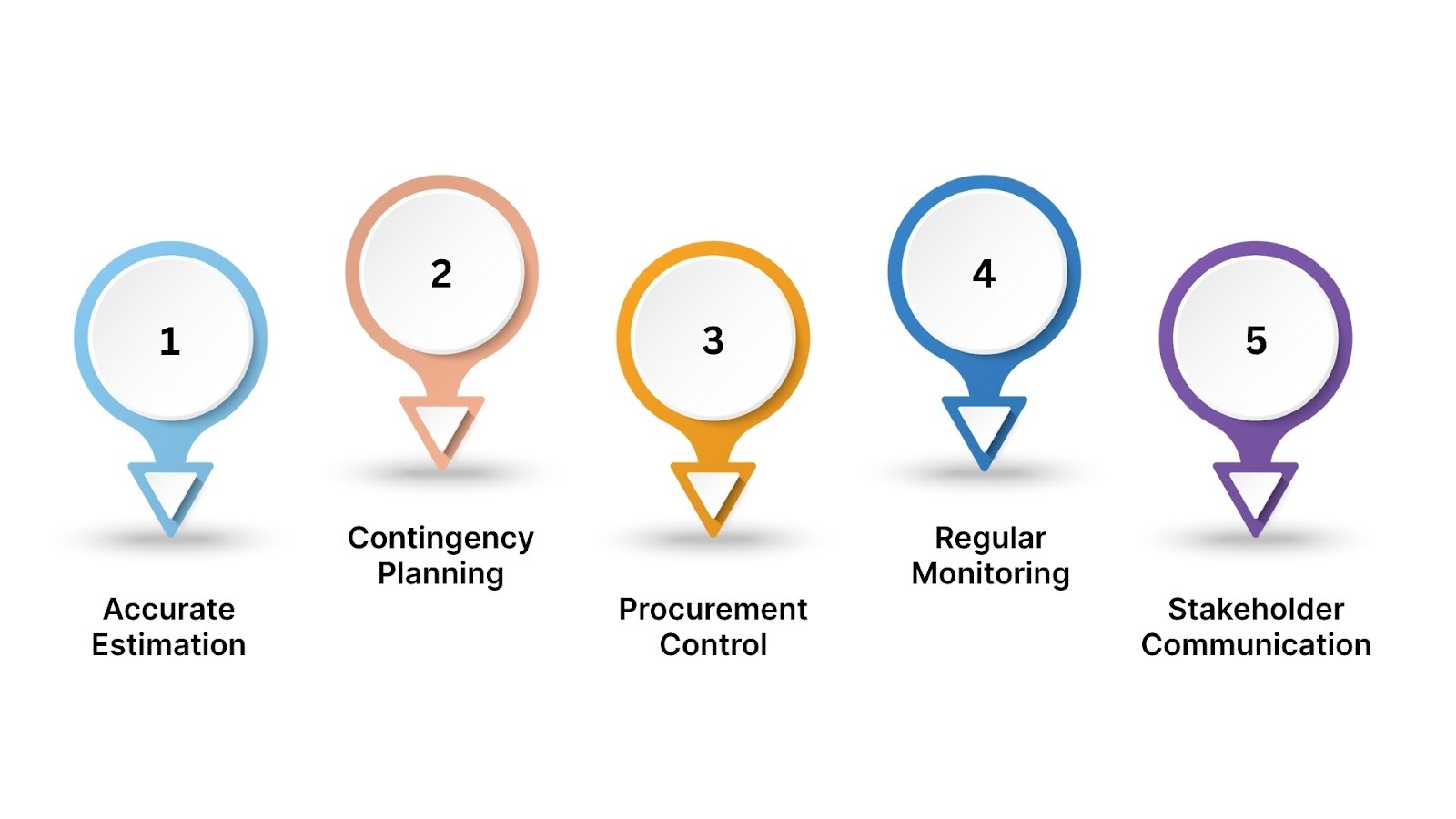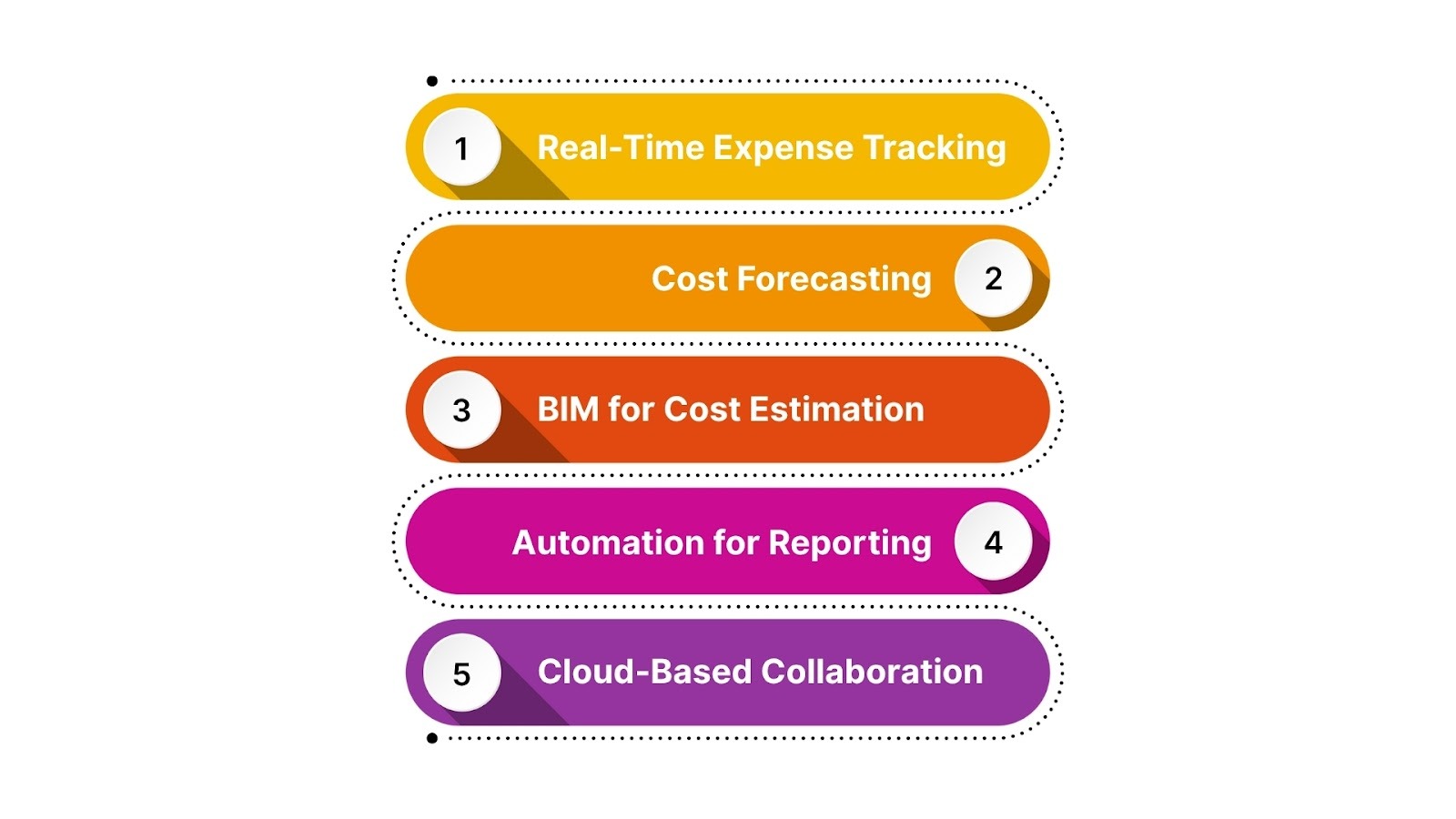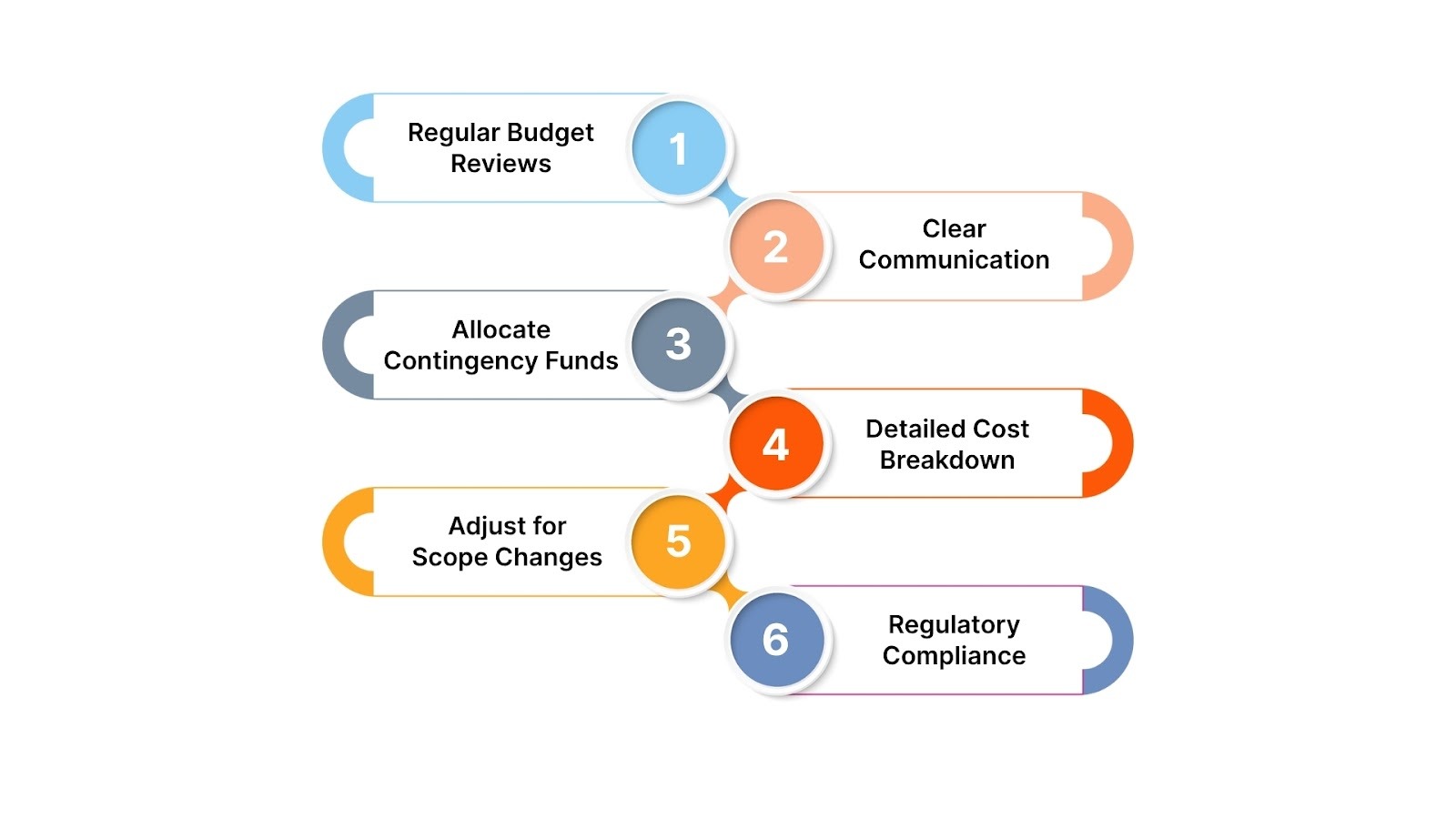
Saudi Arabia’s construction market is rapidly growing, projected to reach USD 91.36 billion by 2029. This growth is fueled by Vision 2030 and major infrastructure projects, such as Neom and Red Sea Global. With such investments, the sector is full of potential, creating countless opportunities for businesses.
However, for small and medium-sized businesses, including startups, managing construction budgets can feel overwhelming. Rising material costs, labor shortages, and shifting regulations make financial control a constant challenge.
In fact, 53% of construction projects in Saudi Arabia have experienced cost overruns, highlighting the importance of a reliable strategy. Without one, staying within budget can become a daunting task for you.
In this blog, you’ll dive into the essential elements of construction company budget management services. You’ll find practical tips and insights to help you manage your budgets effectively, stay on track, and keep your projects within financial reach.
Effective budget management in construction requires careful planning, accurate cost estimation, and ongoing monitoring. Without a clear plan, projects can exceed financial limits, leading to delays and cost overruns.
Many factors, such as materials and labor, influence construction costs. In Saudi Arabia, local challenges like Saudization requirements can increase labor costs. Additionally, VAT compliance under ZATCA adds another layer of complexity, requiring careful tracking and reporting.
Seasonal factors such as Ramadan and the Hajj season can also impact supply chains and project timelines. ERP solutions in Saudi Arabia, help businesses manage these variables by keeping budgets updated and ensuring compliance with local regulations.

Construction budget management involves several key elements that ensure the success of a project and prevent unexpected financial pitfalls. Each component plays a key role in controlling costs and helping ensure that projects stay within budget and meet financial goals.

To break it down, here are the main elements involved in effective budget management:
While these components lay the groundwork for effective budgeting, the right technology can help you stay ahead of potential challenges.
Incorporating technology into construction budget management can significantly enhance the accuracy and control of project finances. With the right tools, businesses can gain better visibility into their spending and make informed decisions. The advancement of technology has made it easier to track real-time expenses and avoid errors that can arise from manual entry.

Here are the ways in which technology supports effective construction budget management:
While technology plays a crucial role in modernizing construction budgeting, it’s equally important to understand the regulations that guide financial decisions in Saudi Arabia.
Saudi Arabia’s construction industry is shaped by a strict set of regulations that impact every project’s budget. Understanding these laws is crucial for accurate financial planning and avoiding delays or unexpected costs.
Below are the key regulations and their effect on project budgets.
The Zakat, Tax, and Customs Authority (ZATCA) is the regulatory body responsible for enforcing VAT on construction projects in Saudi Arabia.
Impact on Budget:

The Saudi Building Code (SBC) sets strict standards for construction safety, efficiency, and sustainability, with recent updates incorporating green building practices.
Impact on Budget:
Enacted in December 2023, the New Civil Transactions Law (NCTL) enhances contract clarity and strengthens legal protection in construction agreements.
Impact on Budget:
FIDIC (Fédération Internationale des Ingénieurs-Conseils) contracts, particularly the Red, Yellow, and Silver Books, are commonly used in large Saudi projects.
Impact on Budget:
Labor and material costs are substantial in Saudi Arabia’s construction sector, espcially in mega-projects like NEOM and The Red Sea Project.
Impact on Budget:
Having outlined the key regulations and technological tools that influence budgeting, it's crucial to implement best practices to optimize financial control and minimize risk.
To successfully manage a construction project’s budget, it’s essential to follow certain best practices that help ensure financial control. These practices focus on monitoring
costs, staying within budget limits, and addressing issues before they escalate. Consistently applying these strategies will help mitigate risks and prevent budget overruns.

Here are the key best practices to consider for managing your construction budget effectively:
Implementing best practices ensures strong financial control, but using the right tools can make budget management even more efficient.
Also Read: Navigating the challenges of complying with ZATCA regulations
Managing a construction budget can be complex, especially when balancing multiple stakeholders, timelines, and financial expectations. HAL makes this process simpler by offering solutions that help keep projects on track and within budget.
For instance, Jash Holding, a leading Facilities Management company handling multiple projects across various locations, successfully uses HAL to manage operations involving over 3,000 employees, ensuring that each project remains financially controlled.
Here’s how HAL helps simplify construction budget and project management:
HAL’s easy-to-use interface and powerful features help construction businesses gain better control over their budgets, minimize financial risks, and deliver projects on time and on budget.
Effective construction budget management is essential for the success of any project. By adopting best practices, using ZATCA-compliant ERP systems, and maintaining ongoing oversight, businesses can effectively manage costs. This approach minimizes risks and ensures that projects are completed on time and within budget.
Investing in the right tools, such as HAL ERP, can further support these efforts by providing real-time tracking, forecasting, and enhanced collaboration. These tools help companies anticipate financial challenges and adjust their plans accordingly.
Schedule a free consultation to explore how HAL ERP for Saudi contractors can simplify your budget management and help you meet project deadlines.

1. How can construction companies avoid going over budget during a project?
To prevent overspending, construction companies should regularly review and track their expenses, create a detailed budget breakdown, and set aside contingency funds for unexpected costs.
2. What are some common challenges in construction budget management?
Common challenges such as rising material costs, labor shortages, scope changes, and managing multiple stakeholders can easily cause budget overruns if not carefully managed.
3. How does technology help manage construction budgets?
Technology, such as ERP systems, allows businesses to track expenses in real-time, predict costs using historical data, and automate reporting, reducing errors and improving financial oversight.
4. What should be included in a construction budget breakdown?
A construction budget should include costs for materials, labor, equipment, permits, overhead, and a contingency fund to account for unforeseen expenses.
5. How often should a construction project budget be reviewed?
A construction budget should be reviewed regularly, ideally on a weekly or monthly basis, to ensure that expenses are tracked accurately and adjustments can be made as needed.
